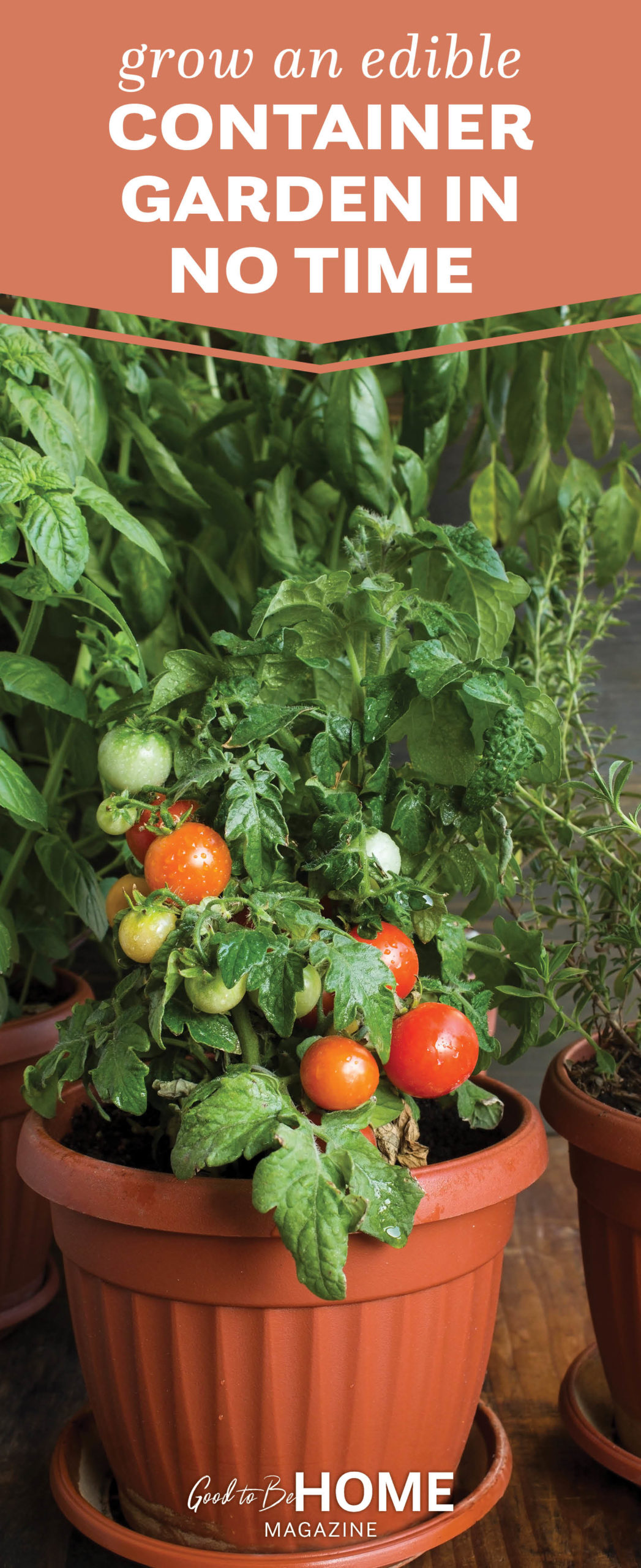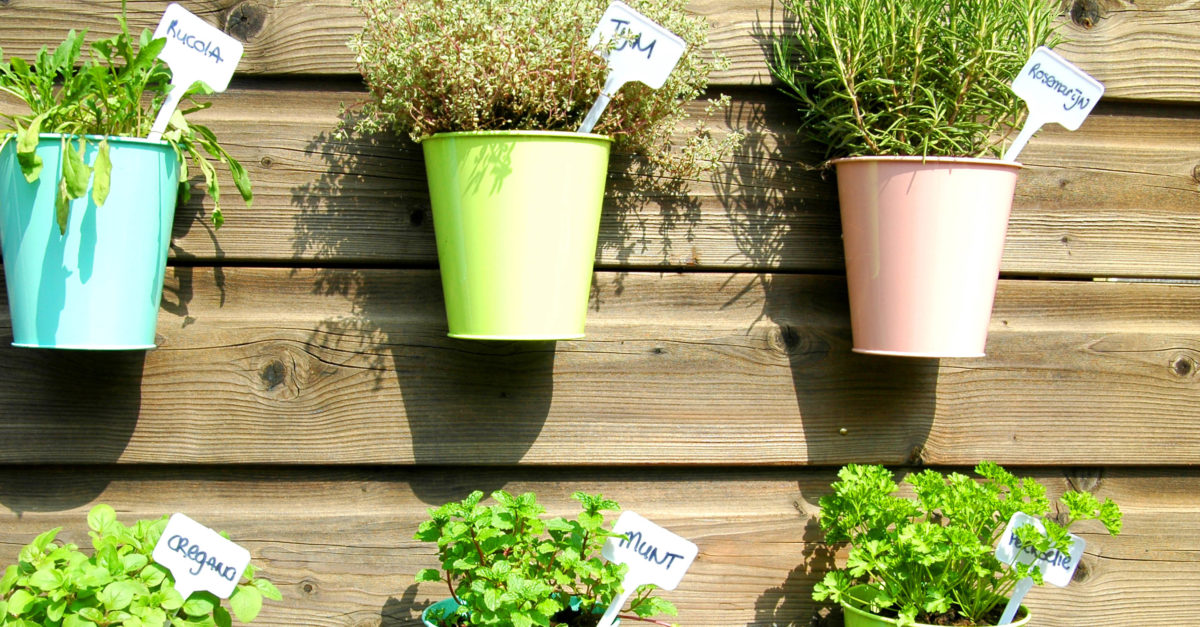Grow An Edible Container Garden in No Time
Do you dream of growing fresh summer vegetables, herbs, and fruits but don’t have a lot of time or a big yard? It’s easy to plant bountiful container gardens—all you need is a pot or two. Container gardening is perfect for small spaces, and you can grow these mini gardens almost anywhere, such as on a balcony, patio, or deck. Follow these tips, and you can harvest your own produce in a few weeks’ time.
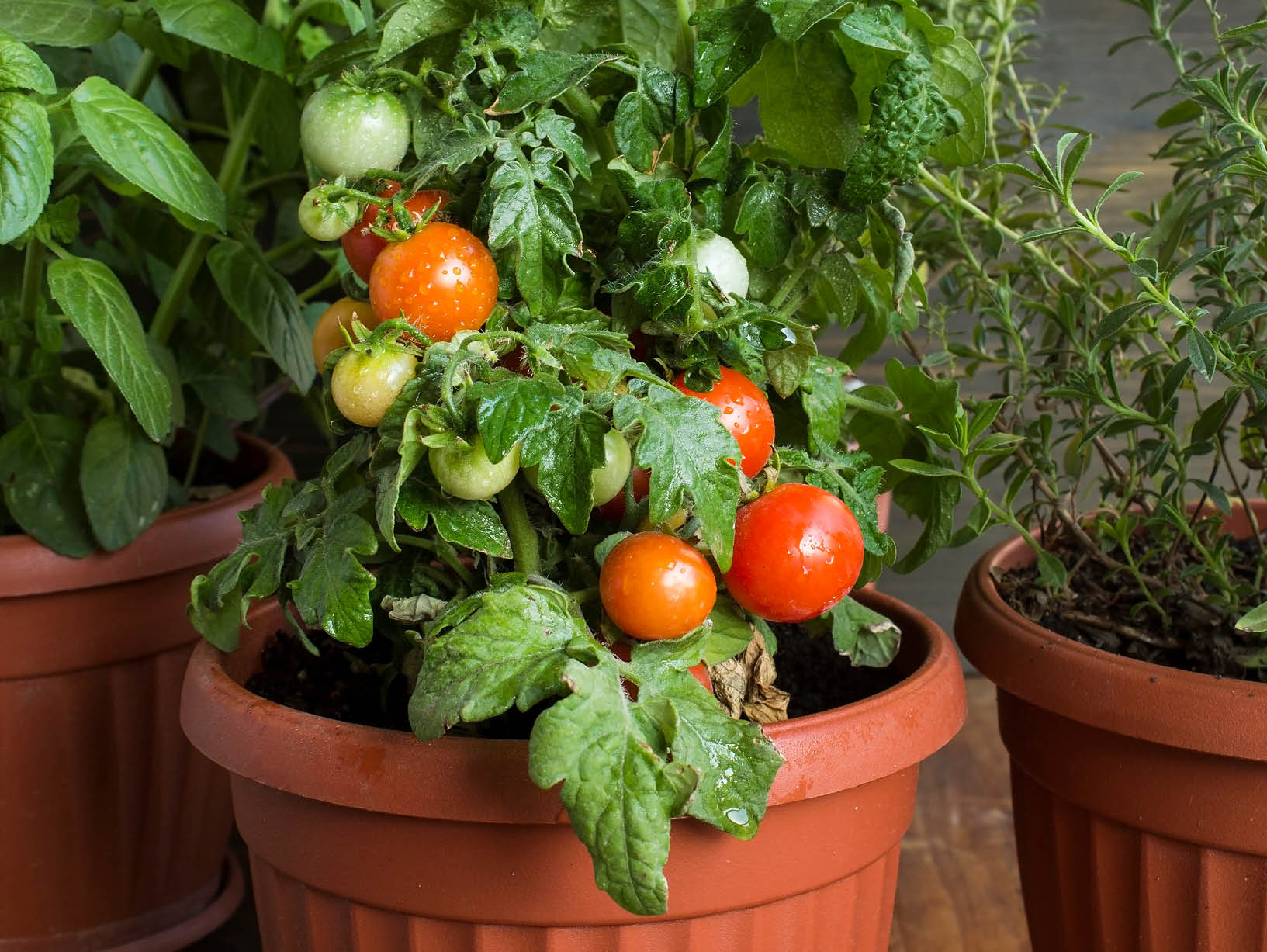
Choose your crops
Pick plants that will thrive even if your area tends to get hot and humid. Tomatoes, peppers, beans, cucumber, squash, and eggplant grow well in summer heat. You can also grow berries and herbs, such as strawberries, raspberries, blueberries, oregano, basil, dill, parsley, sage, and rosemary. Plant seedlings or more mature plants instead of seeds so you’ll get produce more quickly. Look for plants that are bred for container gardening as they are more suitable for growing in pots.
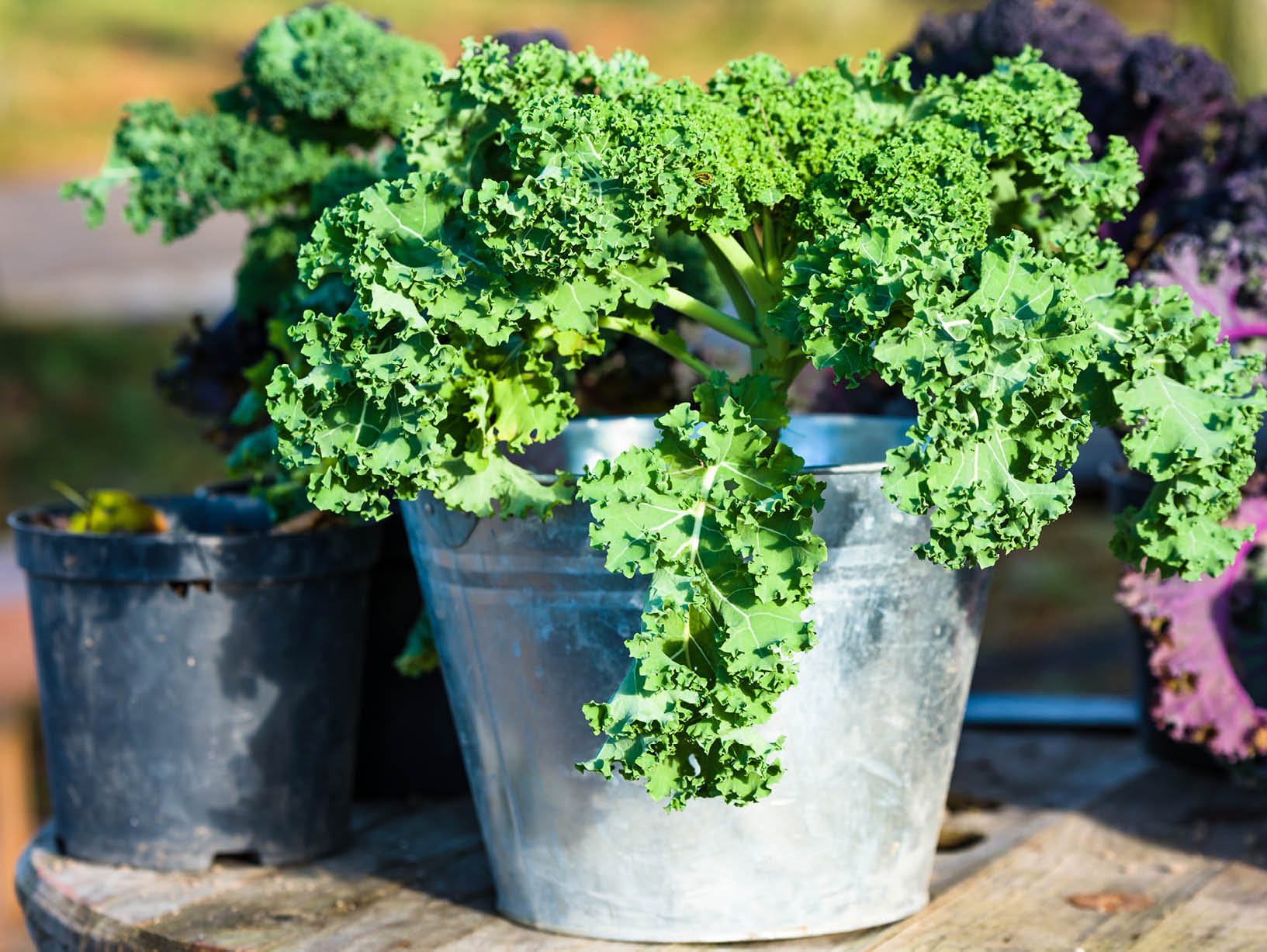
Pick your containers
You’ll need a container with plenty of room for your plants to grow, and the requirements may vary depending on what you’re planting. For example, you could put four spinach plants in a six-inch-wide pot, but it’s best to only put one tomato plant in a container that’s eighteen to twenty-four inches wide. Almost any container, even a bucket, will work if it has drainage; you can add holes for water to drain with a drill. The soil will stay moist longer in large planters than in small ones. Read your plants’ tags or consult with your gardening store to determine how big a pot you’ll need. Some crops, such as herbs, cherry tomatoes, and strawberries, will also grow beautifully in hanging baskets.
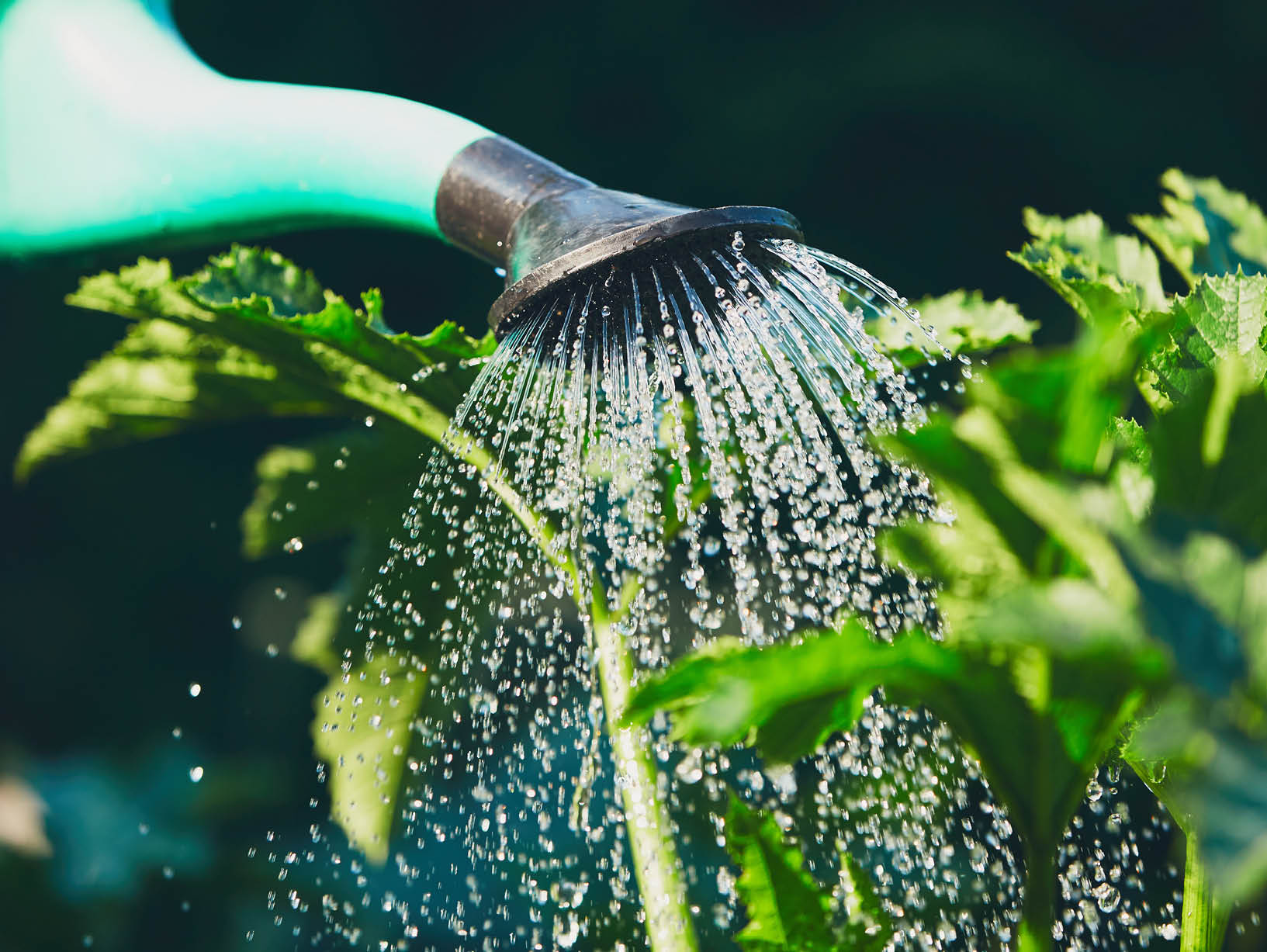
Seek out the light
Most container gardens need at least six hours of sunlight a day, and you can relocate them as the day progresses to get more rays. If you put your planters on wheeled caddies or in lightweight plastic pots, they might be easier to move. Experiment with where you place your planters—it could take some time to determine the best spot for optimal growth.
Feed your plants
Water, fertilizer, and an organic potting mix will give your plants the moisture and nutrients they need. Water your potted garden once a day, preferably early in the morning or late at night, or whenever the soil feels dry. Your plants will eventually need additional nutrients, so provide these by adding a liquid organic fertilizer at least every two weeks.
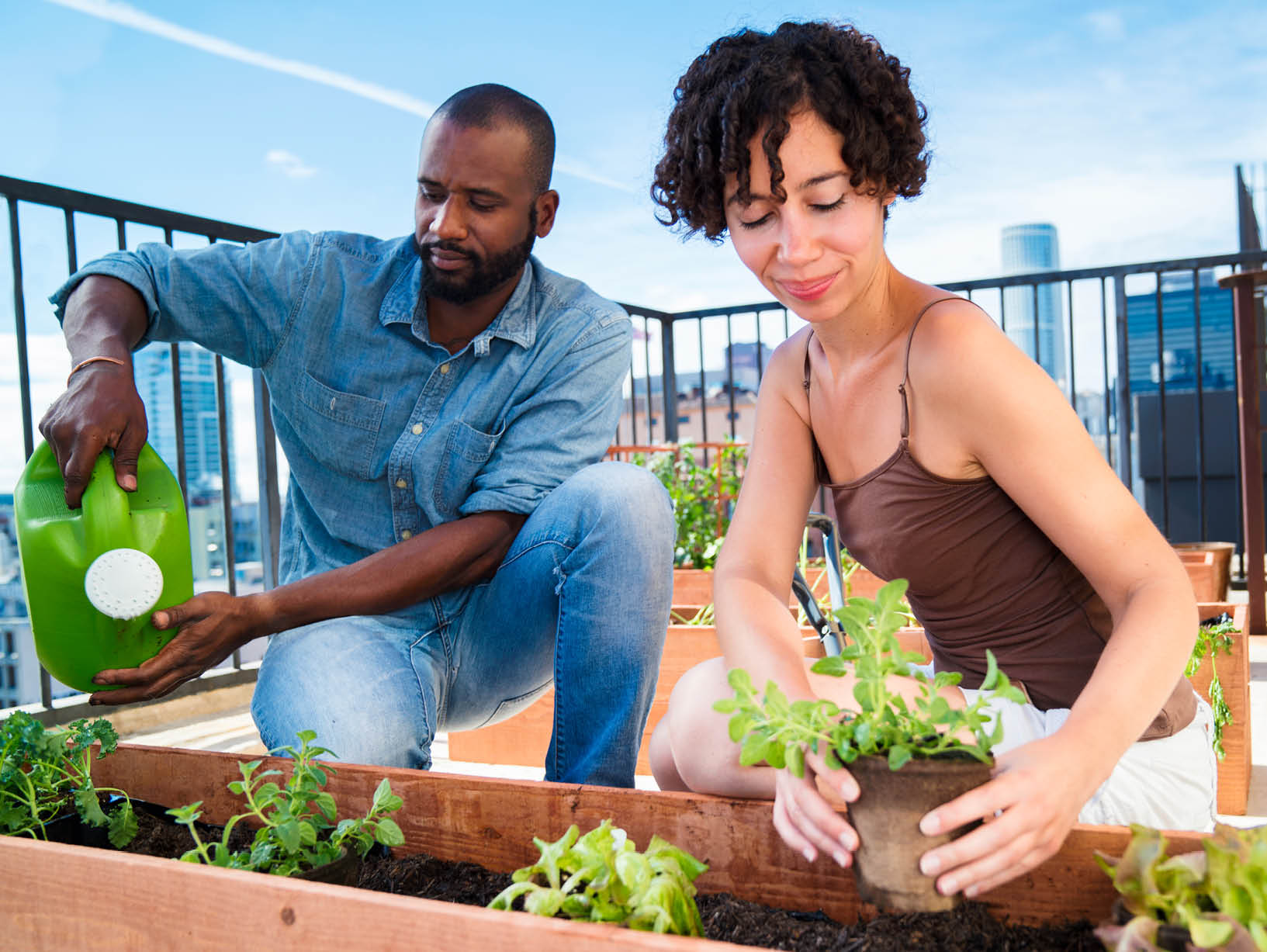
Foster growth
Some plants need extra support to grow their best. Vine crops like squash and cucumbers may flourish on a stake or trellis, which will provide them with room to grow and better access to sunlight. Place wire cages around your tomato plants immediately after planting them to prevent their branches from drooping as they produce fruit.
Mix it up
With some planning, you can grow different plants together in one pot. Combinations you can try are a tomato plant with basil and parsley, beans with squash, or colorful marigolds with cucumbers.
If you want homegrown fruits, veggies, and herbs to enjoy this season, starting a container garden can be the solution. Try these tips to get your garden started!
